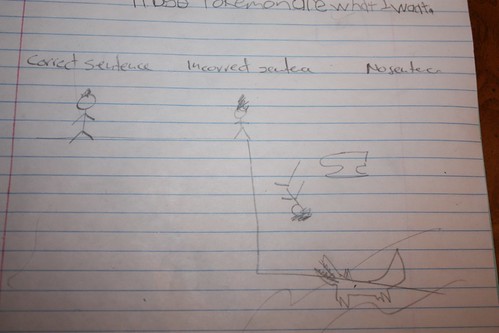The big house project for this year was to fix up the shed.
It is now ready for Winter.
These is still some work on the door, but I am not going to have time to do it before next year.
Because we take our summer vacations in early in the summer, by the time our Thanksgiving mountain getaway comes along, we are more than ready for a break. This year, as always, was lovely.
Maybe one day we will rent a lonely mountain hut away from it all and hike for days, but for now ski resorts are the place to be. Our condo included lift tickets, bike rentals and access to the skating rink. Combined with a train ride on the Hobo Railroad and the visit to the Squam Lakes Natural Science Centre our stay was just what the doctor ordered.
This is the first year that Markus was expected to walk all the hikes by himself.
How did he do? Not too bad. By the third day he was pretty exhausted and Chris carried him for a while, but otherwise we were good to our word to not pick him up if he complains. He was busy enough picking up sticks to not ask more often than that.
Trevor and Owen really got into hiking and had a great time.
Though I am sure this is always true, this year in particular I feel that I have so many things on the go I can barely get the minimum done. I was reluctant to be away from the work and house for the four days but I was so glad to be able to spend this time with just my guys and none of the other tasks that I usually run mad with.

Harvest Cake ingredients (partial)
On the weekend I had friends over for some cake. This meant that I dropped everything and had three cakes ready for 7PM. It was hectic but I am glad I did it. I hope my guests liked the cakes – this (ok, there is more apple pie in another dish) is all that was left:
The cakes were frazzled to reflect my state of mind while making them.

What I told Trevor would happen if he doesn’t do his homework
Did you know that memorizing multiplication tables is not required by Ontario curriculum?
Yes! I say. Good riddance rote multiplication tables and don’t let the door hit you on the way out.
Alas, not everyone is as relieved about this as me and many parents in my neighbourhood are concerned with the “Discovery Math” approach currently used in Ontario schools. With nothing better to recommend my opinion than having had 12 years of math instruction in the traditional system here is what I think:
Somewhere between grade one and post graduate level, a student with an average brain has to make a shift from “fundamental” (i.e. you have memorized the rules and methods and are applying them to a problem that is obviously calling for these) to “derived” (you have a problem and you have to figure out how to solve this based on what you already know). My understanding of Discovery Math is that instead of having to make this shift in private, as was the case when I was in school, it pre-emptively makes this shift for you by making it difficult to rely on “fundamental” approach to solve problems.
In Discovery math students tend put in much more work and get lower grades. I think this is because in the same period of time they are not only expected to learn mathematical concepts thought through “fundamental” method, but are expected to learn to learn. At our local high school the students are expected to work in teams to figure out solutions rather than have the teacher answer all of their questions immediately. Furthermore, they are given word problems such as “how many balls can you fit in the box of this size” or “here is a picture of a bridge, describe it in mathematical terms”. The parents I talked to are are somewhere between slightly disapproving to outright outraged. The teachers I’ve spoken to are not worried at all. Though I have neither gone though this kind of instruction myself nor had a kid go through it yet, I like the idea – this is pretty much how it was at University. Professors were very rarely available to help and even less rarely of any use therefore groupthink was the most efficient way to learn. Questions on the exams were almost never prepped for in the class and many old exams had to be obtained on the sly (or not at all) with only few of the teachers willing to share them. It is interesting that a high school would create up a mock-University setup. It well might be “too much too early” but the idea of forcing students to deal with situation they are to encounter in a much less supportive environment in a year or two is not unappealing to me.
Though if I had to admit the truth, I think that my inclination towards Discovery Math stems from personal experience. I would say that people use “fundamental” approach for as long as their mental abilities to remember methods and apply them appropriately can measure up to the complexity of the math curriculum. At one point, if you are not streamed away from math and math-like courses, you hit the wall and have to invest more time and effort to do tasks your peers (even those that are not as strong in math as you) are doing with no visible trouble. I would not think it uncommon that “hitting the wall” is usually accompanied by a period of bad grades and severely injured pride along with the hitherto not required mental effort to keep up and get back to begin good at math. For me this happened in grade two and multiplication tables. It took me until grade five to recover.
So let’s say that you had to solve 8×7 and you were not allowed to use a piece of paper or your fingers. A kid that has multiplication tables memorized would simply say 56. I would have to (and still do) calculate the following
– add a 0 behind 7 to get to 10×7
– subtract 7 to get to 9×7
– now I have to subtract another 7 but we only have 3 until the next 0 so actuality subtract 3 and then 4 to get to 8×7
7×10 – 7 – 3 – 4
Also, you have to do this quickly to keep up with the jerks who simply memorized this. To my credit, by the time we got to grade 9, I was able to do calculations in my head using my technique while most other students had to use the calculator because memorization only got them so far. I am not saying that you should not memorize things if you can, but I don’t believe the benefit of memorization is particularly long lasting. For me the “wall” period lasted a few years and was not pleasant. It also happened unusually early – I would guess that most people going into University programs requiring math credits would hit the wall in late high school or at University.
If you go along with the wall analogy, the Discovery Math is essentially artificially creating this wall, perhaps earlier than the student would encounter it in the wild, and teaching them to get over it explicitly as part of the curriculum. I wonder how successful this is, particularly as many people get streamed out of math before they get to make the switch or perhaps choose to stream out of sciences because they are not able to make it.
In any case, I don’t think my kids in particular are in danger from Discovery Math though I can’t vouch for anyone else’s. I think I would have done well in a Discovery Math setting if it was available when I was a kid, but at the end of the day I did fine anyway.
Now that my two weeks of solitude are coming to a close I have to admit that the two things I was expecting to happen did not happen. I did not expect to have no free time and I did not expect to not be lonely. Most of my time was taken up by work on the shed and at the office and I was so very pleasantly surprised to have so many people come over to visit me or invite me over. I don’t think I had a single “not doing anything” day. It was amazing!
This weekend I also got a couple of great second hand deals:
I love elephants and I love ottomans. Can you go wrong with this guy???
A neighbour e-mail me to tell me she is getting rid of two boys bikes. I love my neighbours!
Finally, the best part of the weekend – I completed my first metric century!!!
I have been training for this for over two years and I am so excited we did it. I am so glad Luisa was able to join me – it was so much more fun doing it with a friend.